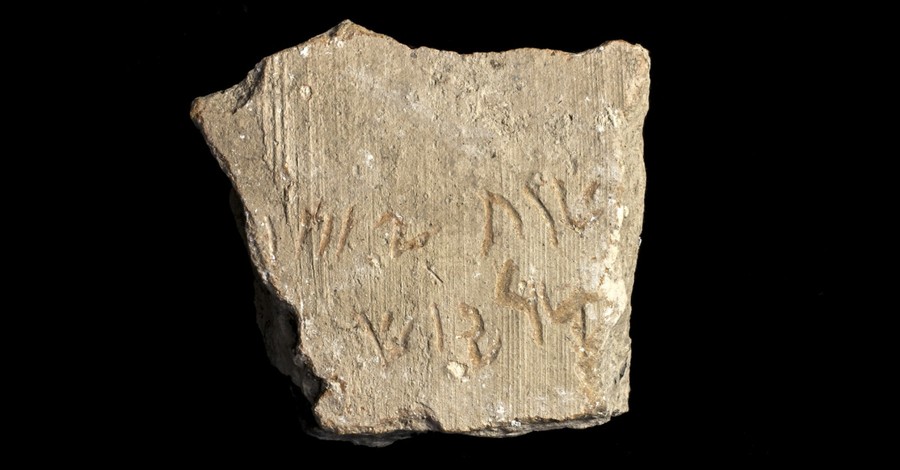
A seemingly rare archaeological find bearing the same of King Darius of the Bible is not authentic and includes an inscription made just last year, the Israel Antiquities Authority says.
The pottery shard had been discovered in Israel’s Tel Lachish National Park by two hikers and included an Aramaic inscription reading, “Year 24 of Darius.” The well-respected Israel Antiquities Authority previously issued a news release on the shard, claiming the inscription dated to 498 B.C. during the time of “Darius the Great.” Darius the Great is referenced in the biblical book of Ezra.
But the Israel Antiquities Authority subsequently reversed itself, saying that although the shard indeed is old, the inscription had been made recently by a foreign researcher during a visit to the site as she taught her students.
“Following the publication, an expert who participated in the Tel Lachish expedition last August contacted the Israel Antiquities Authority,” the IAA said. “She is one of the few researchers specializing in ancient Aramaic inscriptions, and admitted demonstrating to a group of students the manner in which sherds were inscribed in ancient times. She then left the sherd on the site, which led to the erroneous identification. She was questioned and said this was done unintentionally and without malice.”
Gideon Avni, the chief scientist of the Israel Antiquities Authority, said the body “takes full responsibility for the unfortunate event.”
“The sherd was examined by Dr. Haggai Misgav, a leading researcher on ancient Aramaic script and Sa’ar Ganor, an archaeologist studying the site of Tell Lachish and its region. However, as it turns out, the find does not bear an ancient inscription,” Avni said. “As an institution that strives for the scientific truth, we are committed to correcting the mistake that was made and making it known to the public. In terms of ethical and scientific practices, we see this as a very severe occurrence. Leaving the newly inscribed sherd on the site was careless and led to the mistake done by the researchers and distorted the scientific truth. Such cases in archaeological research are very few in number.”
The mistake, Avni added, “illustrates the dangers of adding modern scripts on ancient artifacts.”
“On top of the paleographic examination of the sherd by an experienced epigraphist, the sherd was examined in various laboratories and found to be ancient,” Avni said. “This once again proves that only finds discovered in controlled archaeological excavations should be considered 100% authentic. All other finds should raise questions regarding their authenticity.”
The Israel Antiquities Authority, Avni said, “will refresh proper procedures and policies with all foreign expeditions working in the country.”
The shard had been billed as the “first discovery of an inscription bearing Darius the Great's name anywhere in the Land of Israel.”
Although the shard is fake, plenty of archaeological evidence remains outside of Israel of Darius the Great’s reign. For example, in 1933, a researcher unearthed two stone boxes in modern-day Iran with a pair of gold and silver plaques that reference Darius. According to the Bible Archaeology Report, they read, “Darius the great king, king of kings, king of countries, son of Hystaspes, an Achaemenid. King Darius says: This is the kingdom which I hold, from the Sacae who are beyond Sogdia [the Scythians] to Kush, and from Sind [India] to Lydia – [this is] what Ahuramazda, the greatest of gods, bestowed upon me. May Ahuramazda protect me and my royal house!”
Related:
A First: 2,500-Year-Old Inscription Referencing King Darius of the Bible Discovered in Israel
Photo courtesy: ©Israel Antiquities Authority, used with permission.
Michael Foust has covered the intersection of faith and news for 20 years. His stories have appeared in Baptist Press, Christianity Today, The Christian Post, the Leaf-Chronicle, the Toronto Star and the Knoxville News-Sentinel.










